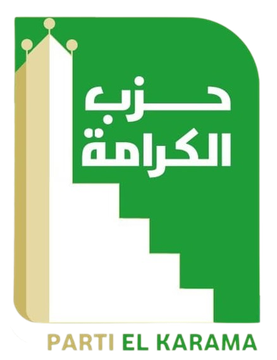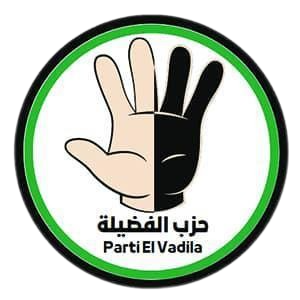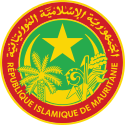
Mauritania is a presidential democracy, but has suffered from repeated military coups since its Independence in November 1960. For 18 years after independence, Mauritania was a one-party state under Moktar Ould Daddah. This was followed by decades of military rule. The first fully democratic presidential election in Mauritania occurred on 11 March 2007, which marked a transfer from military to civilian rule following the military coup in 2005. The election was won by Sidi Ould Cheikh Abdallahi, who was ousted by another military coup in 2008 and replaced by general Mohamed Ould Abdel Aziz. Mauretania underwent its first peaceful transition of power after the 2019 presidential election, although this was between two presidents of the ruling UPR party and former army generals.

Elections in Mauritania encompass four different types: presidential elections, parliamentary elections, regional elections and local elections.

The Mauritania national football team, nicknamed Al-Murabitun in the reference to Almoravid dynasty, represents Mauritania in men's international football. It is controlled by the Féderation de Football de la République Islamique de Mauritanie, and is a member of the Confederation of African Football. They have not qualified for the FIFA World Cup. However, in the Amílcar Cabral Cup, a regional tournament for West Africa, Mauritania came fourth in 1980 on hosting the competition. The national football team of Mauritania later runners-up in 1995, losing on penalties to Sierra Leone after the final finished 0–0.

The Rally of Democratic Forces, or Assembly of Democratic Forces, is a political party in Mauritania. It is led by Ahmed Ould Daddah.

The Union of the Forces of Progress is a centre-left to left-wing political party in Mauritania.

The National Assembly is the unicameral legislative house of the Parliament of Mauritania. The legislature currently has 176 deputies, elected for five-year terms in electoral districts or nationwide proportional lists.

The Mauritanian Parliament is composed of a single chamber, the National Assembly. Composed of 176 members, representatives are elected for a five-year term in single-seat constituencies.

The Republican Party for Democracy and Renewal was a political party in Mauritania. Formerly known as the Democratic and Social Republican Party, the party changed its identity and adjusted its political stance after the 2005 coup. Formerly very supportive of President Mu'awiya al-Taya and his policies, after the August 2005 coup, the party denounced Taya's policies and the mid-2006 Israeli military campaign in Lebanon.

Parliamentary elections were held in Mauritania on 19 November 2006, with a second round on 3 December. At least 28 political parties competed for seats in the National Assembly, the lower house of Parliament. Islamist parties were banned, but many Islamists ran as independent candidates. 95 seats in the National Assembly were at stake in the election, along with over 200 local councils.
The People's Progressive Alliance is a small political party in Mauritania.

The Socialist Democratic Unionist Party was an Arab nationalist political party in Mauritania. As of 2013, the party was led by Mahfouz Weld al-Azizi.

Parliamentary elections were held in Mauritania on 17 May 1959. The result was a victory for the Mauritanian Regroupment Party, which was the only party to contest the elections, thereby winning all 40 seats in the National Assembly. Voter turnout was 90.3%.

Parliamentary elections were held in Mauritania on 11 October 1996, with a second round in 16 of the 79 constituencies on 18 October. After the ruling Democratic and Social Republican Party (PRDS) won 60 of the 63 seats decided in the first round, the opposition Union of Democratic Forces boycotted the second round, resulting in the PRDS winning a total of 70 seats. Voter turnout was 52.1%, and only around 30% in Nouakchott.

Parliamentary elections were held in Mauritania on 23 November. The opposition has vowed to boycott the election unless the president steps down beforehand. A total of 1,096 candidates have registered to compete for the leadership of 218 local councils across Mauritania, whilst 438 candidates are contesting for the 146 parliamentary seats. Some 1.2 million Mauritanians were eligible to vote in the election. The first round results yielded a landslide victory for the ruling UPR winning 56 seats and their 14 coalition partners winning 34 seats. The Islamist Tewassoul party won 12 seats. The remaining seats were contested in a runoff on 21 December 2013. The UPR won the majority with 75 seats in the Assembly.

Elections to the French National Assembly were held in Mauritania on 17 June 1951. Mauritania had one seat in the Assembly, which was won by Sidi el-Mokhtar N'Diaye, a member of the Mauritanian Progressive Union. He defeated the incumbent, Horma Ould Babana, who had been elected as a member of the French Section of the Workers' International in the last election, but had since gone on to leave the SFIO and form his own party, the Mauritanian Entente.

El Islah is a political party in Mauritania currently led by Mohamed Ould Talebna. As of 2023, the party has six seats in the National Assembly.

El Karama is a political party in Mauritania led by Cheikhna Ould Mohamed Ould Hajbou.

El Vadila is an Islamist political party in Mauritania, led by Ethmane Ould Ahmed Aboulmaaly.

The Party of Unity and Development is a small political party in Mauritania led by Mohamed Baro.










